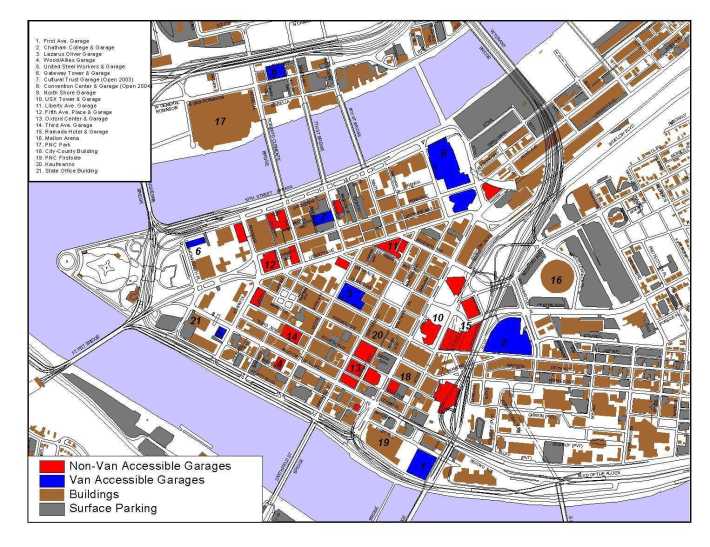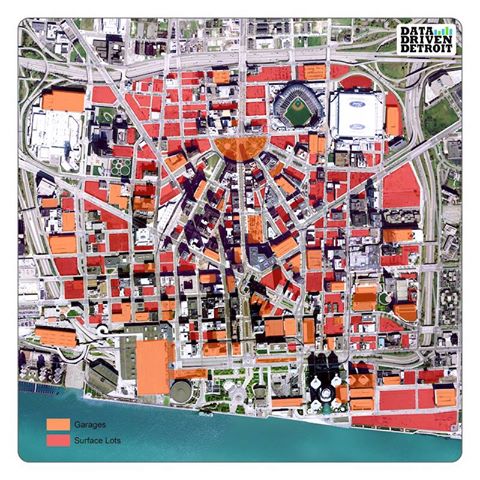This parking map of downtown Detroit has been making the rounds, following news of the city's bankruptcy. It's a striking image: Close to 40 percent of downtown Detroit's develop-able land is parking, local experts say.
We thought it would be interesting to contrast it with a city that has a similar history to Detroit but is currently performing much better economically: Pittsburgh. Despite its rust belt history, Pittsburgh has a very progressive parking policy.
Here's Detroit, surface lots in red, garages in orange:
Now Pittsburgh: buildings in brown, garages in red and blue and surface lots in grey.

Policies enacted by Pittsburgh have helped discourage solo car commuting. The city issues a 40 percent tax on parking throughout the city. It's the highest tax of its kind in the country, and at one time it was an even higher 50 percent. In 2006, the Pittsburgh City Paper reported the city was generating about $44.5 million a year from parking taxes -- more than it was making from taxing resident income.
Detroit issues no special tax on parking. The city as a whole, like most U.S. cities, uses parking minimums that artificially inflate parking, but the rules are relaxed somewhat downtown, says Rob Linn, formerly of Data Driven Detroit, maker of the above Detroit map. (Linn is now with the Southwest Detroit Business Association.)
Linn said he thinks the preponderance of parking in downtown Detroit isn't so much a result of parking regulation, but the way the city taxes land.
"Parking lots are taxed as vacant lots; buildings are taxes at a much higher rate," he said. "It sort of weirdly discourages you from doing anything with your land."
The way commuters get to downtown Detroit and downtown Pittsburgh offers a pretty stark contrast as well.
Clearly, there's also a straightforward connection between land use and commuting, although its debatable whether too much parking is the cause or the effect of Detroit's relative car dependence. Linn points to the city's pitiful transit system as a contributing factor to the parking problem.







